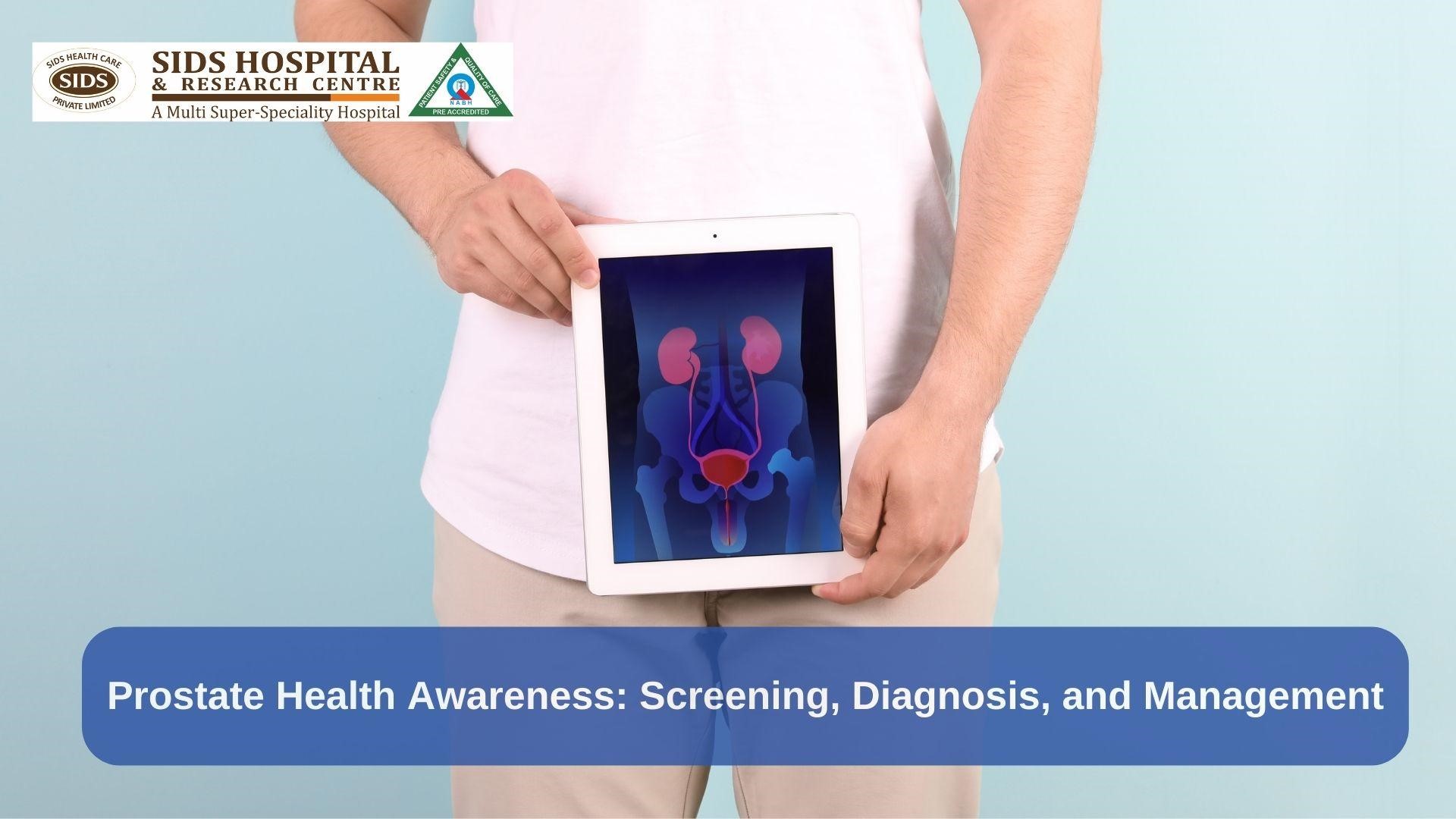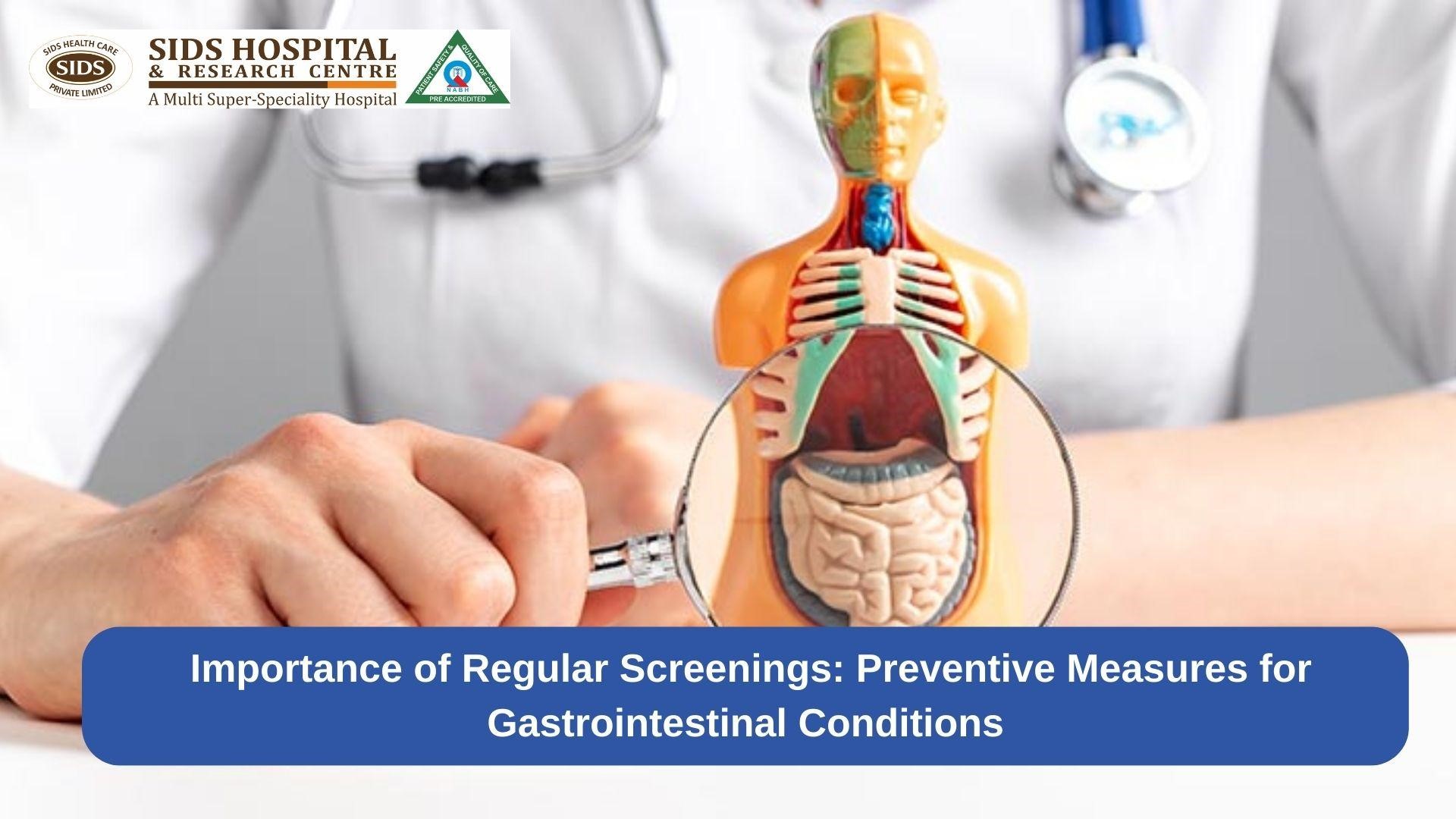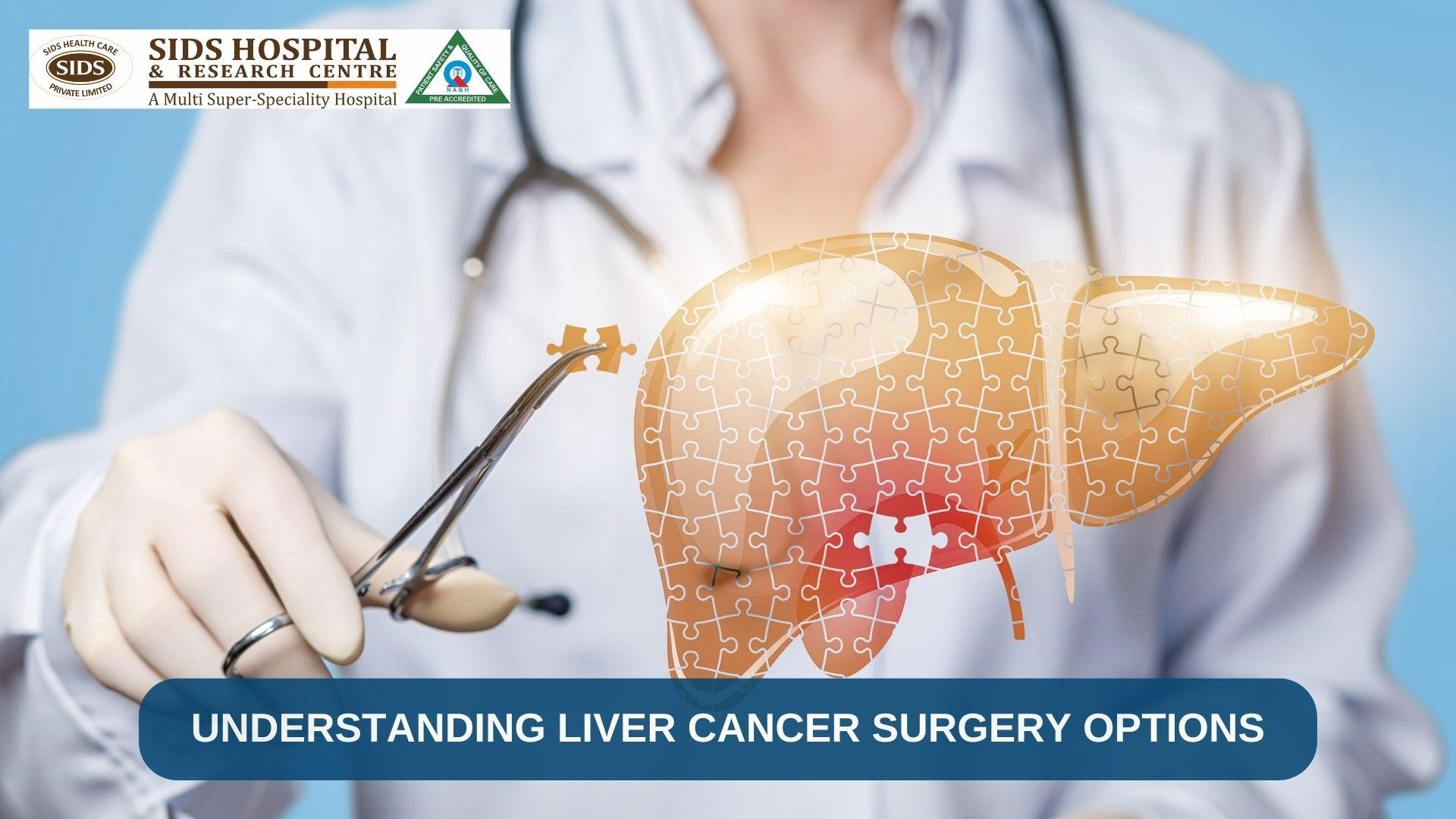The Impact of Stress on Digestive Health and Strategies for Coping
In this fast life, stress has become an all too familiar companion for us. From work deadlines to family responsibilities, financial worries to health concerns, stress can manifest in various forms and take a toll on our physical and mental well-being. But stress has a negative impact on not just emotional but physical aspects of our body too. In this blog, doctors from SIDS Hospital, one of the best hospitals in Surat, have explored the connection between stress and digestive health, as well as strategies for coping and promoting a healthy balance.
Understanding the Gut-Brain Connection
The gut-brain connection refers to the bidirectional communication between the brain and the gastrointestinal (GI) tract. This complex relationship involves a network of nerves, hormones, and neurotransmitters that influence digestive function and overall well-being. Whether acute (short-term) or chronic (long-term), stress can disrupt the delicate balance and affect the functioning of the digestive system.
The Impact of Stress on Digestive Health
Doctors from the best gastro hospital in Surat, SIDS Hospital, have seen the negative impact of stress on the digestive health, leading to symptoms such as:
Digestive Upset:
Stress can trigger or exacerbate symptoms of digestive upset, including abdominal pain, cramping, bloating, gas, and diarrhoea. These symptoms may be related to changes in gut motility, increased sensitivity to pain, or alterations in the gut microbiome.
Heartburn and Acid Reflux:
Stress can worsen symptoms of gastroesophageal reflux disease (GERD), including heartburn, regurgitation, and chest pain. Stress may increase the production of stomach acid and relax the lower esophageal sphincter, allowing stomach acid to reflux into the oesophagus and cause discomfort.
Changes in Appetite:
Stress can affect appetite regulation, leading to changes in eating habits such as overeating or undereating. Some individuals may turn to comfort foods high in sugar, fat, and calories during times of stress, while others may experience a loss of appetite and decreased food intake.
Exacerbation of Digestive Disorders:
For individuals with pre-existing digestive disorders such as irritable bowel syndrome (IBS), inflammatory bowel disease (IBD), or functional dyspepsia, stress can exacerbate symptoms and trigger flare-ups. Stress may contribute to increased gut inflammation, heightened visceral sensitivity, and alterations in gut microbiota composition.
Impaired Digestion and Nutrient Absorption:
Chronic stress can impair digestive function by diverting blood flow away from the digestive organs and inhibiting secretion of digestive enzymes and gastric acid. This can lead to impaired digestion and absorption of nutrients, potentially affecting overall nutritional status and health.
Strategies for Coping with Stress and Promoting Digestive Health
While stress is an inevitable part of life, these strategies shared by the experts of SIDS Hospital, well-known as one of the best gastro hospitals in Surat, can help you to cope with stress and promote digestive health:
Mindfulness and Relaxation Techniques:
Practice mindfulness meditation, deep breathing exercises, progressive muscle relaxation, or guided imagery to promote relaxation and reduce stress levels. These techniques can help calm the mind, alleviate physical tension, and improve overall well-being.
Regular Physical Activity:
Engage in regular physical activity such as walking, jogging, yoga, or swimming to reduce stress and promote digestive health. Exercise helps release endorphins, neurotransmitters that boost mood and reduce stress, while also promoting regular bowel movements and healthy digestion.
Healthy Eating Habits:
Adopt a balanced diet rich in fruits, vegetables, whole grains, lean proteins, and healthy fats to support digestive health. Avoiding excessive intake of caffeine, alcohol, processed foods, and high-fat or spicy foods can help reduce the risk of digestive upset and promote overall well-being.
Adequate Sleep:
Prioritize quality sleep by establishing a regular sleep schedule, creating a restful sleep environment, and practicing good sleep hygiene habits. Adequate sleep is essential for reducing stress, supporting immune function, and promoting optimal digestive health.
Social Support:
Seek support from friends, family members, or support groups to help cope with stress and promote emotional well-being. Talking about your feelings, sharing experiences, and connecting with others can provide comfort, validation, and perspective during difficult times.
Stress Management Techniques:
Explore stress management techniques such as journaling, art therapy, or spending time in nature to help cope with stress and promote emotional resilience. Finding activities that bring joy, relaxation, and fulfillment can help buffer the effects of stress on digestive health.
Professional Support:
If stress is significantly impacting your quality of life or digestive health, consider seeking support from a healthcare professional such as a therapist, counsellor, or gastroenterologist. They can provide personalized guidance, resources, and treatment options to help address your specific needs and concerns.
Conclusion
Stress can have a profound impact on digestive health, leading to symptoms such as digestive upset, heartburn, changes in appetite, and exacerbation of digestive disorders. Practicing mindfulness, engaging in regular physical activity, adopting healthy eating habits, prioritizing sleep, seeking social support, exploring stress management techniques, or seeking professional support — these are some practices shared by the best gastroenterologists in Surat that can help in nurturing digestive health in times of stress.


 Book Appointment
Book Appointment.png) Video Consultation
Video Consultation









